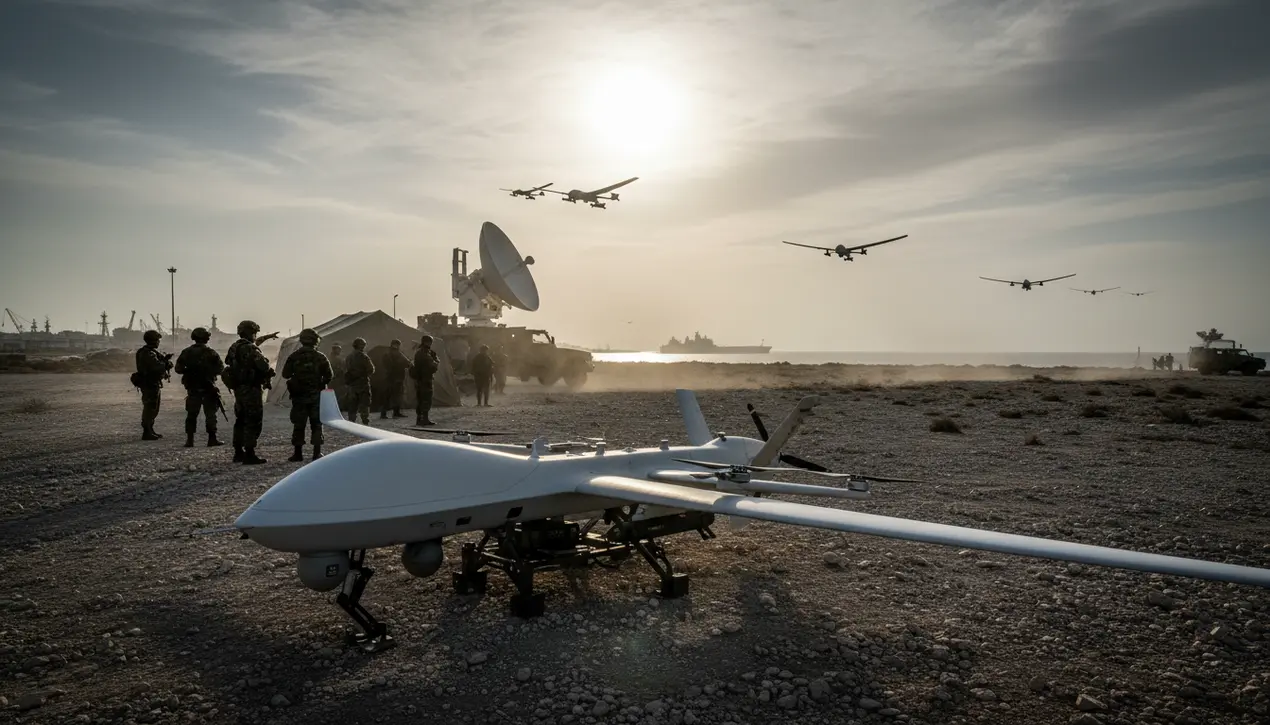
Politicsconflict & defenseMilitary Operations
Greece showcases domestically developed drones in major military drill.
RO
Robert Hayes
2 hours ago7 min read
In a strategic display of burgeoning military-industrial capability, Greece conducted a major military exercise near the strategic port city of Alexandroupolis, where it unveiled a comprehensive suite of domestically developed unmanned aerial systems and electronic countermeasures. This demonstration, set against the backdrop of heightened regional tensions and a protracted arms race with neighboring Turkey, signals a profound shift in Athens' defense doctrine, echoing historical precedents where nations, under pressure, have turned inward to foster self-reliance.The drones showcased ranged from tactical surveillance models to more sophisticated armed variants, alongside advanced systems designed to detect, track, and neutralize hostile drones—a critical capability in modern asymmetric warfare where the skies are increasingly contested by commercially available technology. This initiative is not merely a tactical exercise but a cornerstone of a broader, multi-billion euro modernization program championed by the Greek government, aimed explicitly at reducing dependency on foreign arms suppliers, primarily the United States, Germany, and France, and cultivating a sovereign defense technology base.Analysts point to the ongoing disputes in the Aegean Sea and the Eastern Mediterranean over maritime boundaries and energy resources as the primary catalyst for this accelerated investment, drawing parallels to the Cold War era where technological one-upmanship defined geopolitical standoffs. The location of the drill itself is deeply symbolic; Alexandroupolis has become a pivotal logistics hub for NATO forces, and by flexing its indigenous capabilities there, Greece sends a dual message of alliance solidarity and national resilience.Defense experts suggest that while the showcased technology may not yet rival the top-tier offerings from global defense giants, its development represents a crucial leap in operational autonomy, allowing the Hellenic Armed Forces to tailor systems to the unique, mountainous, and maritime terrain of the region. Furthermore, this push for technological sovereignty carries significant economic and diplomatic weight, potentially positioning Greece as a future niche exporter of drone technology to other medium-sized powers facing similar security dilemmas.However, this path is fraught with challenges, including the immense R&D costs, the need to continuously innovate against rapidly evolving threats, and the delicate diplomatic dance of asserting military independence while remaining a steadfast NATO member. The successful integration of these systems into the existing command-and-control infrastructure will be the true test of their efficacy, a process that will be closely watched in capitals from Ankara to Brussels and Washington, as it recalibrates the balance of power in one of Europe's most volatile regions.
#featured
#Greece
#military exercise
#drones
#domestic technology
#defense industry
#Alexandroupolis
Stay Informed. Act Smarter.
Get weekly highlights, major headlines, and expert insights — then put your knowledge to work in our live prediction markets.
Comments
Loading comments...
© 2025 Outpoll Service LTD. All rights reserved.